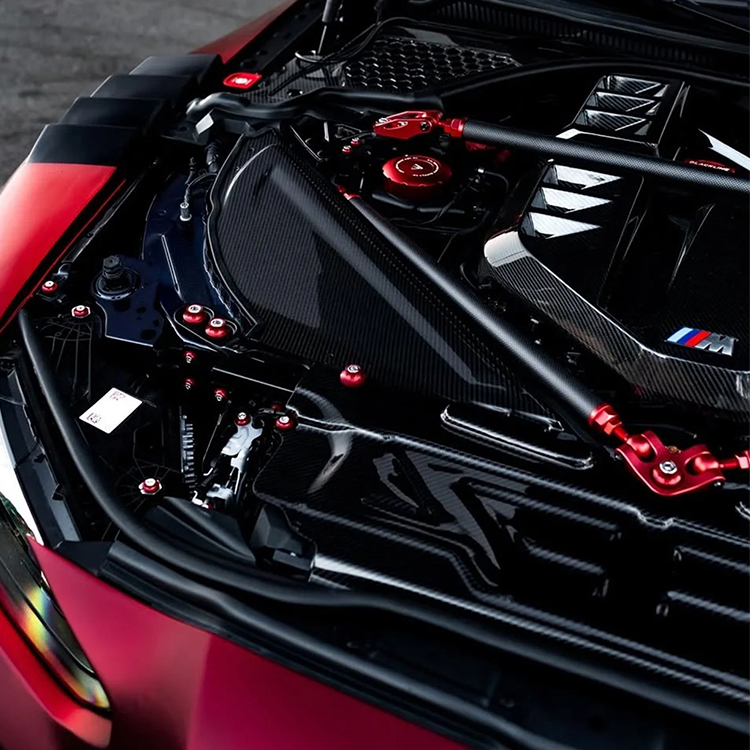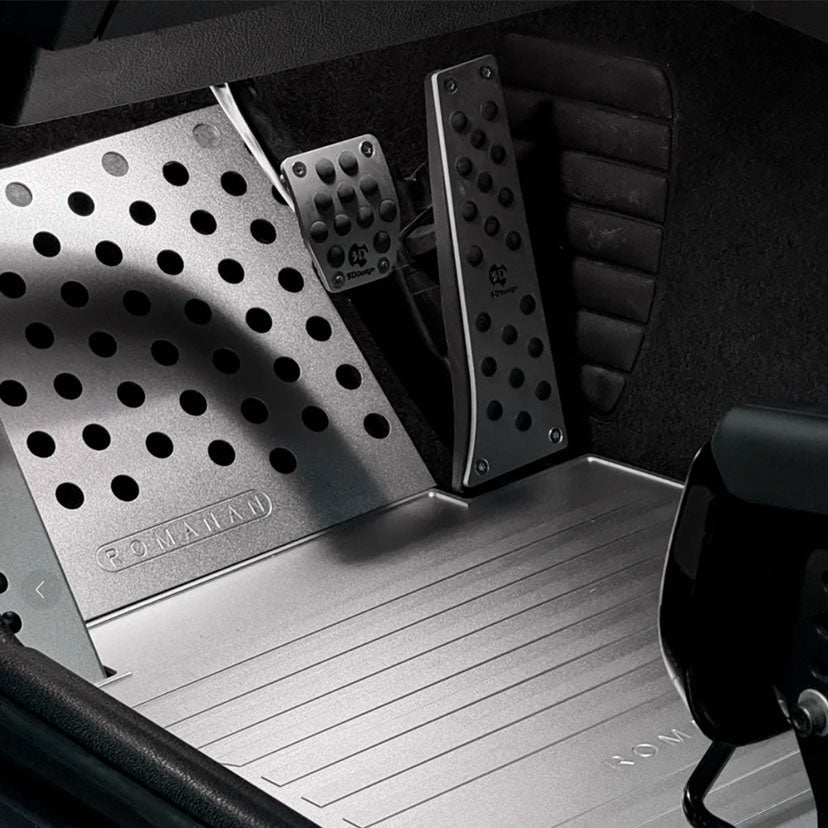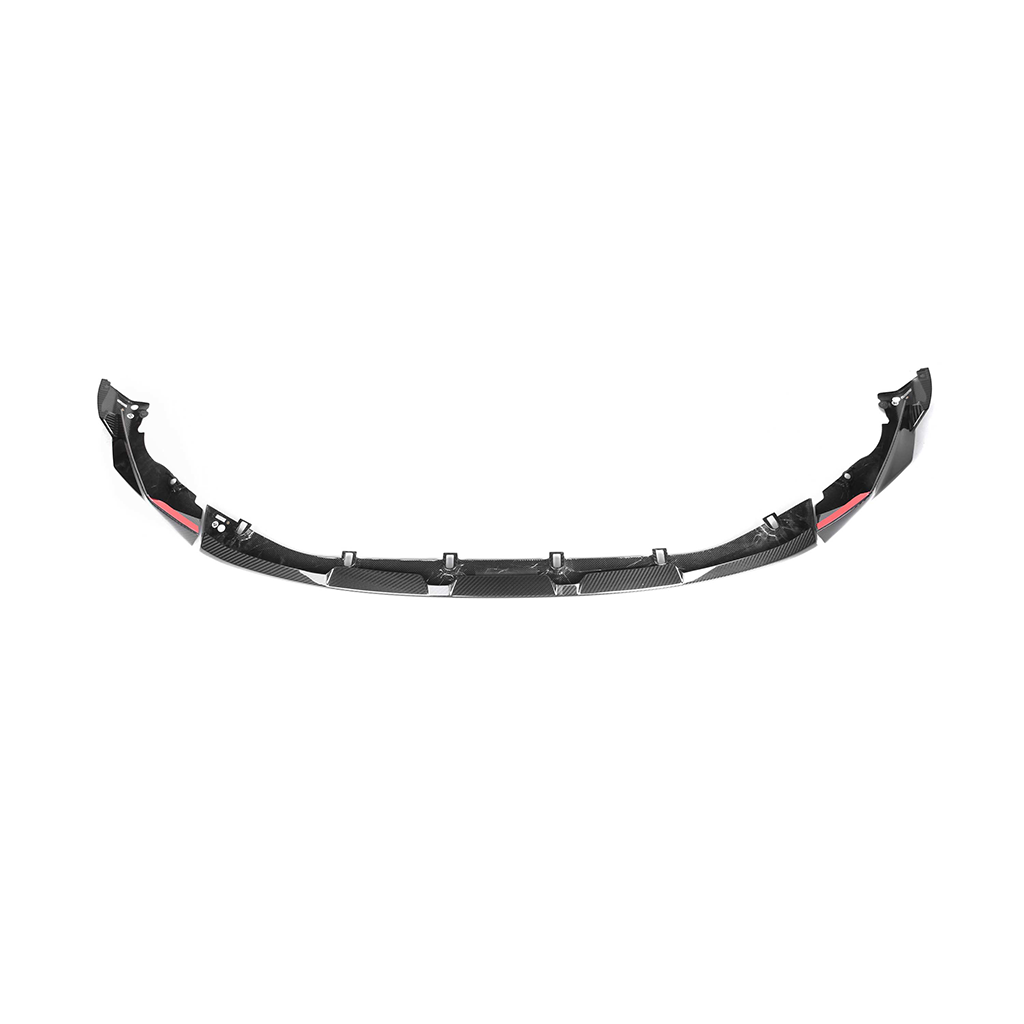When comparing Audi 2.0 TFSI vs 3.0 TFSI engines, you’ll find that the 3.0 TFSI stands out for its superior reliability. This engine delivers consistent performance over time, with fewer mechanical issues and lower long-term maintenance costs. The 2.0 TFSI, while efficient, often faces challenges with durability under heavy use. By understanding the strengths and weaknesses of each engine, you can make an informed decision that aligns with your priorities, whether it’s long-term dependability or fuel efficiency.
Key Takeaways
-
The Audi 3.0 TFSI engine is stronger and breaks less often.
-
The 2.0 TFSI engine has cool features but common issues like oil leaks.
-
Taking care of both engines is important to avoid problems.
-
The 3.0 TFSI engine needs fewer big fixes as it ages.
-
It also sells for more money because it works better longer.
-
Pick the 3.0 TFSI for lasting use or 2.0 TFSI for saving gas.
Audi 2.0 TFSI Engine Reliability

Design and Features
The Audi 2.0 TFSI engine showcases a blend of advanced engineering and innovative technology. Its revamped fuel system operates at a higher pressure of 250 bar, ensuring precise fuel delivery for optimal performance. Chain drive modifications, including longer guides and faster oil pump ratios, enhance durability and efficiency. The engine also incorporates the Audi Valvelift System, which optimizes intake valve operation to improve power output.
A standout feature is the B-cycle combustion process, which uses a higher expansion ratio to boost fuel efficiency without compromising performance. Additionally, the enhanced engine management system ensures better combustion efficiency, while low-viscosity engine oil reduces friction for smoother operation. These features contributed to the engine winning the prestigious “International Engine of the Year” award in 2019, solidifying its reputation for quality and innovation.
|
Specification/Feature |
Description |
|---|---|
|
Revamped Fuel System |
Higher pressure of 250 bar for improved fuel delivery. |
|
Chain Drive Modifications |
Longer guides, lower tensioning force, and faster oil pump ratios enhance durability and efficiency. |
|
Enhanced Engine Management |
Newer management system improves combustion efficiency. |
|
B-cycle Combustion Process |
Utilizes a higher expansion ratio for better fuel efficiency and performance. |
|
Audi Valvelift System |
Optimizes intake valve operation for improved performance. |
|
Engine Oil with Less Viscosity |
Reduces friction and enhances engine efficiency. |
|
Award Recognition |
Won the “International Engine of the Year” award in 2019 for its performance and efficiency. |
Common Issues
Despite its advanced design, the Audi 2.0 TFSI engine has faced several common issues. Premature timing chain stretching has been reported, particularly in models manufactured between 2011 and 2018. Increased oil consumption is another frequent problem, often leading to unstable idling after significant mileage. Electrical issues, such as sunroof drainage system malfunctions causing leaks, have also been noted. Additionally, a recall involving 350 Q3 SUVs from the 2020 model year highlighted brake-related concerns.
-
Common issues with the Audi 2.0 TFSI engine include:
-
Premature stretching of the timing chain, particularly in 2011-2018 models.
-
Increased oil consumption, leading to unstable idling after significant mileage.
-
Electrical problems related to the sunroof drainage system causing leaks.
-
A recall affecting 350 Q3 SUVs from the 2020 model year due to brake issues.
-
Strengths
The Audi 2.0 TFSI engine stands out for its versatility and widespread use across various models, including the Audi TT, S3, A4, and Q5. Its Miller-like cycle, featuring short intake cam duration and dual fuel injection, ensures a balance of performance and efficiency. This engine has earned a reputation as one of the best Audi engines, thanks to its innovative technology and proven reliability.
|
Manufacturer/Engine Design |
Technology Approach |
Models Incorporating Technology |
|---|---|---|
|
Audi 2.0 L TFSI |
Miller-like cycle with short intake cam duration and dual fuel injection |
Audi TT, S3, A4, Q5, Volkswagen Golf GTi, and more |
The combination of cutting-edge features and consistent performance makes the 2.0 TFSI a strong contender in the debate of Audi 2.0 TFSI vs 3.0 TFSI. While it may not be the most reliable Audi engine overall, its quality and efficiency make it a popular choice for drivers seeking a balance between power and fuel economy.
Audi 3.0 TFSI Engine Reliability
Design and Features
The Audi 3.0 TFSI engine represents a pinnacle of engineering among Audi engines. It combines a supercharged V6 design with advanced technologies to deliver exceptional performance and reliability. This engine features a displacement of 3.0 liters, producing 335 horsepower and 369 lb-ft of torque. It accelerates from 0 to 60 mph in just 5.1 seconds, showcasing its impressive power.
|
Engine |
Displacement (L) |
Power (HP) |
Torque (lb-ft) |
0-60 mph (s) |
|---|---|---|---|---|
|
2.0 TFSI |
2.0 |
333 |
369 |
5.2 |
|
3.0 TFSI |
3.0 |
335 |
369 |
5.1 |
|
4.0 TFSI |
4.0 |
453 |
406 |
4.5 |
The engine also incorporates adaptive dampers and a robust chassis, which enhance handling and provide a smooth driving experience. These features make the 3.0 TFSI a standout choice for those seeking both performance and comfort.
Common Issues
While the 3.0 TFSI engine is known for its quality, it is not without flaws. Common issues reported by users include:
-
Oil pressure faults and high oil consumption.
-
Secondary air system failures and thermostat malfunctions.
-
Water pump leaks, which can lead to overheating.
-
Ignition coil problems causing misfires and vibrations.
-
Intermittent starting issues, particularly in older models.
These problems, though not widespread, highlight the importance of regular maintenance to ensure engine reliability over time.
Strengths
The Audi 3.0 TFSI engine excels in several areas, making it one of the most reliable Audi engines available. Its smooth and refined performance stands out, offering a broad torque range that enhances the driving experience. Compared to competitors, it delivers relative fuel efficiency without compromising power.
|
Review Insight |
Description |
|---|---|
|
Smooth Performance |
The engine provides refined and consistent output. |
|
Broad Torque Range |
Ensures better acceleration and responsiveness. |
|
Fuel Efficiency |
Balances power with economical fuel consumption. |
|
Engaging Dynamics |
Supports an enjoyable and dynamic driving experience. |
|
Luxurious Interior |
Complements the engine with premium cabin quality. |
The combination of advanced engineering and thoughtful design makes the 3.0 TFSI a top contender in the audi 2.0 tfsi vs 3.0 tfsi debate. Its blend of power, efficiency, and reliability ensures a superior driving experience.
Audi 2.0 TFSI vs 3.0 TFSI: Reliability Comparison

Maintenance Costs
When comparing the maintenance costs of the Audi 2.0 TFSI and 3.0 TFSI engines, you’ll notice distinct differences. The 2.0 TFSI engine often incurs higher repair expenses due to its susceptibility to timing chain failures and oil consumption issues. These problems frequently require piston and ring replacements, which can be costly. On the other hand, the 3.0 TFSI engine demonstrates better reliability, with fewer major repairs reported. However, it does require periodic replacements of the PCV valve and thermostat, typically by 50,000 miles.
Here’s a breakdown of common maintenance costs for both engines:
|
Wear Item Service |
Estimated Interval Miles |
Budget Cost Range |
|---|---|---|
|
Wiper Blades |
10,000 to 20,000 |
$20 to $50 |
|
12-V Battery |
3 to 6 years |
$200 |
|
Brakes |
N/A |
$750 per pair |
|
Brake Fluid Changes |
30,000 |
$200 |
|
4-Wheel Alignment |
30,000 |
$125 |
|
Tires |
40,000 to 50,000 |
~$1,000 |
|
Belts and Hoses |
100,000 |
$300 |
|
Timing Belts |
70,000 to 90,000 |
$750 to $1,000 |
|
Transmission Fluid Changes |
N/A |
$350 to $650 |
Regular maintenance ensures both engines perform optimally, but the 3.0 TFSI’s fewer reliability issues make it a more cost-effective choice over time.
Durability and Longevity
The durability of an engine plays a critical role in its long-term value. The Audi 3.0 TFSI engine has a reputation for being one of the most reliable Audi engines, thanks to its robust design and fewer recurring issues. Revisions to its timing tensioner have further improved its reliability. In contrast, the 2.0 TFSI engine has faced challenges with oil consumption and timing chain failures, which have frustrated many owners.
|
Engine Type |
Reliability Issues |
Maintenance Notes |
|---|---|---|
|
3.0 TFSI |
PCV and thermostat replacement by 50,000 miles |
Generally reliable, revisions improved timing tensioner issues |
|
2.0 TFSI |
Oil consumption issues, timing chain failures |
Frustrating reliability, required piston and ring replacements under warranty |
If you’re looking for an engine that offers consistent performance over the years, the 3.0 TFSI stands out as the better option.
Performance in Real-World Conditions
Real-world performance often reveals the true quality of an engine. The 3.0 TFSI engine delivers a balanced combination of power and efficiency, making it ideal for both city driving and highway cruising. It achieves a combined fuel economy of 22 MPG, which is competitive for its class. The 2.0 TFSI engine, while efficient, struggles under heavy loads and extended use, which can impact its reliability.
|
Engine Type |
City MPG |
Highway MPG |
Combined MPG |
|---|---|---|---|
|
Supercharged 3.0L V6 |
19 |
29 |
22 |
|
Turbocharged 4.0L V8 |
18 |
29 |
22 |
|
W-12 Engine |
14 |
22 |
17 |
|
Turbocharged Diesel V6 (TDI) |
24 |
36 |
28 |

The 3.0 TFSI engine’s broad torque range and smooth acceleration enhance its real-world usability, making it a preferred choice for drivers seeking both performance and reliability.
Resale Value
When considering the resale value of Audi engines, the 3.0 TFSI engine consistently outperforms the 2.0 TFSI. Buyers often prioritize reliability and performance when purchasing used vehicles, and the 3.0 TFSI delivers on both fronts. Its reputation for durability and fewer recurring issues makes it a more attractive option in the second-hand market.
The 2.0 TFSI engine, while efficient and widely used, tends to depreciate faster. Common issues like timing chain failures and oil consumption problems can deter potential buyers. These concerns often lead to higher maintenance costs, which negatively impact the engine’s resale value. On the other hand, the 3.0 TFSI engine benefits from its robust design and fewer reported problems, making it one of the best Audi engines for long-term ownership.
|
Engine Type |
Average Depreciation Rate (5 Years) |
Key Factors Affecting Resale Value |
|---|---|---|
|
2.0 TFSI |
45-50% |
Timing chain issues, oil consumption |
|
3.0 TFSI |
35-40% |
Strong reliability, fewer repairs |
You’ll also find that the 3.0 TFSI engine holds its value better due to its broader appeal among enthusiasts and luxury car buyers. Its balance of power, efficiency, and quality ensures a strong demand in the used car market. If you’re comparing the audi 2.0 tfsi vs 3.0 tfsi engines with resale value in mind, the 3.0 TFSI emerges as the clear winner.
Tip: Regular maintenance and proper documentation can further enhance the resale value of your vehicle, regardless of the engine type.
Data-Driven Insights on Reliability
Statistics on Common Problems
Understanding common engine problems helps you anticipate potential issues and plan for maintenance. Both the 2.0 TFSI and 3.0 TFSI engines exhibit recurring concerns, though the frequency and severity vary. The 2.0 TFSI engine often faces oil consumption and timing chain failures, which can lead to costly repairs if not addressed promptly. Meanwhile, the 3.0 TFSI engine is more reliable but still experiences issues like ignition coil defects and sensor failures.
Here’s a breakdown of common problems across Audi TFSI engines:
|
Engine Issue |
Description |
|---|---|
|
Oil Consumption |
Common in 2.0 TFSI engines, leading to significant oil usage over time. |
|
Timing Chain Failures |
Notable in 2.0 TFSI models, requiring regular inspection to prevent engine damage. |
|
Ignition Coil Defects |
Internal electrical defects can affect engine performance and efficiency. |
|
Sensor Failures |
Issues with critical sensors can lead to performance problems and should be addressed promptly. |
|
Carbon Build-Up |
Direct-injection models are prone to carbon deposits, affecting engine performance. |
|
Turbocharger Issues |
Failing turbochargers can lead to power loss and require immediate attention. |
|
Fuel Injector Problems |
Can cause rough idling and reduced power, necessitating regular checks. |
|
EGR Valve Clogging |
Reduces efficiency and increases emissions, requiring cleaning or replacement. |
|
DPF Clogging |
Common in vehicles used for short trips, necessitating monitoring and maintenance. |
|
Glow Plug Electrical Defects |
Can impact performance during cold starts, requiring regular testing. |
|
Swirl Flaps Actuator Issues |
Can cause low power and trigger engine warnings, needing prompt attention. |
Regular inspections and timely repairs can mitigate many of these issues, ensuring your engine maintains its quality and performance over time.
Maintenance and Repair Records
Maintenance records reveal that the 3.0 TFSI engine requires fewer major repairs compared to the 2.0 TFSI. The 2.0 TFSI engine often incurs higher costs due to recurring issues like timing chain failures and oil consumption. In contrast, the 3.0 TFSI engine demonstrates better reliability, with fewer reported problems. However, it does require periodic replacements of components like the PCV valve and thermostat, typically by 50,000 miles.
To keep your engine running smoothly, you should adhere to Audi’s recommended maintenance schedule. Regular oil changes, timely inspections, and addressing minor issues early can significantly reduce repair costs and extend the engine’s lifespan.
Engine Lifespan
The lifespan of an engine depends on its design, maintenance, and usage. Studies show that Audi engines, particularly the 3.0 TFSI, are built to last. On average, petrol engines like the TFSI variants can achieve a lifespan of approximately 17.9 years or 139,000 miles with proper care. Diesel engines tend to last longer but require more frequent maintenance.
Here’s a comparison of average lifespans across different powertrain types:
|
Powertrain Type |
Average Lifespan (Years) |
Average Mileage (Miles) |
|---|---|---|
|
All Powertrains |
17.8 |
138,000 |
|
Petrol Vehicles |
17.9 |
139,000 |
|
Diesel Vehicles |
16.0 |
182,000 |
|
BEVs |
18.4 |
124,000 |

The 3.0 TFSI engine’s robust design and fewer recurring issues contribute to its longevity, making it a reliable choice for long-term ownership.
Resale Value Trends
When evaluating the resale value trends of Audi engines, the 3.0 TFSI consistently outperforms the 2.0 TFSI. Buyers in the used car market prioritize reliability and long-term performance, which gives the 3.0 TFSI a significant edge. Its robust design and fewer recurring issues make it a preferred choice for those seeking dependable vehicles with strong market value retention.
Recent analyses reveal that the 3.0 TFSI engine retains over 70% of its original value after 12 months. This figure surpasses all other powertrains as of mid-2022. Over a three-year period, the engine maintains approximately 55% of its value, a notable improvement compared to earlier years. These trends highlight the engine’s enduring appeal and its ability to hold value better than its competitors.
|
Time Period |
Resale Value (%) |
Notes |
|---|---|---|
|
After 12 months |
> 70% |
Surpassed all other powertrains as of mid-2022 |
|
After 36 months |
~ 55% |
Improved from below 40% in 2017 to around 55% in mid-2022 |
In contrast, the 2.0 TFSI engine experiences faster depreciation. Common issues like timing chain failures and oil consumption problems contribute to its lower resale value. These factors often deter potential buyers, who may view the engine as less reliable. While the 2.0 TFSI offers efficiency and versatility, its long-term market performance lags behind the 3.0 TFSI.
If you prioritize quality and long-term value, the 3.0 TFSI engine emerges as the superior choice. Its combination of reliability, performance, and market demand ensures a stronger resale value, making it an excellent investment for both first-time buyers and seasoned enthusiasts.
When choosing between the Audi 2.0 TFSI and 3.0 TFSI engines, you should prioritize your needs. The 3.0 TFSI engine offers superior reliability, making it the better choice for long-term ownership. Its robust design ensures fewer issues and consistent performance over time. If fuel economy is your primary concern, the 2.0 TFSI engine provides an efficient alternative. However, the 3.0 TFSI engine stands out for its overall quality, delivering a balance of power, durability, and dependability that enhances your driving experience.


















Share:
Mercedes OM651 vs OM654 Reliability and Performance Unveiled
Porsche 718 Cayman S vs GTS A Detailed Performance Analysis